Is Bromeliad Toxic to Cats? (Responsible Owner's Answer)
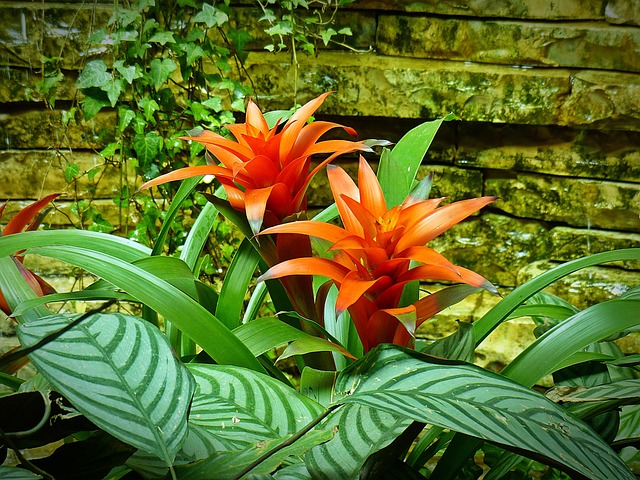
Feeling anxious about the safety of your beloved feline friends?
Worried that the beautiful bromeliad plant in your home might be posing a hidden danger? 😮
Well, who can blame you?
Your fur babies deserve the best protection, and a little paranoia is only natural.
But fear not, my friend, because today we're diving headfirst into the world of bromeliads and their mysterious cat-related secrets.
So, hold on tight and let's unravel this tangled web together.
Is Bromeliad Toxic to Cats?
Bromeliad plants contain saponins that can upset a cat's stomach if consumed in large amounts. However, they are generally considered safe for cats. While some debate exists about specific types, no bromeliads are known to be toxic to cats. Monitor your cat's behavior when having bromeliads at home.
Let's get right into the question that's burning in your mind: Are bromeliad plants toxic to cats?
Different experts and research have varying opinions on this topic, just like the diversity you'd find in a tropical rainforest.
Some people claim that bromeliad plants are toxic to cats and can cause unpleasant symptoms like vomiting and diarrhea.
But hold on a minute.
Other sources say that bromeliads aren't considered poisonous or toxic at all.
So, what's the truth?
Let me shed some light on this mystery for you.
The reality is that bromeliad plants do contain compounds called saponins, which can wreak havoc on a cat's stomach if consumed in large amounts.
However, it's widely believed that these plants are safe for your furry friend.
I know, it's confusing!
To make things even murkier, there's conflicting information about whether cats should avoid the Blushing Bromeliad, a specific type of bromeliad plant.
Some say it's toxic, while others argue it's as harmless as a cuddly kitten.
Here's an important fact for you:
While cats may experience stomach issues from ingesting small amounts of fertilizer used in bromeliad care, they don't need any special protection to handle these plants.
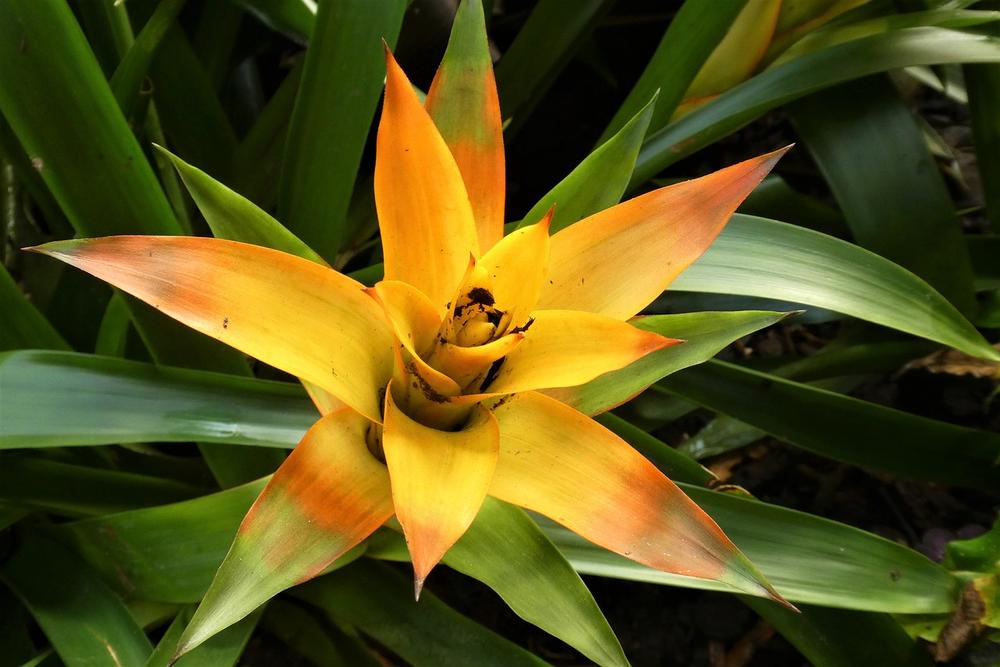
Bromeliads won't poison cats or humans.
But wait, there's more!
Certain bromeliad species can cause allergic reactions in us humans if their sap comes into contact with our skin.
Now, despite all the back-and-forth, here's the scoop:
Cats seem to handle bromeliad houseplants without breaking a sweat.
None of the types of bromeliad plants are known to be poisonous or toxic to our feline friends.
However, it's still key to keep an eye on your cat if you decide to bring bromeliad plants into your home.
Monitor their behavior and consult your vet if anything seems off.
And that's it for this thrilling bromeliad cat caper.
Stay curious, my friends!
And you know what? When it comes to keeping your furry friend safe, I always want to provide you with the most accurate information.
That's why I've written a useful blog post called Are Alstroemeria Poisonous to Cats.
In this comprehensive guide, I delve into everything you need to know about the potential toxicity of alstroemeria flowers to cats.
So if you're concerned about the safety of these beautiful blooms, I highly recommend checking out my article and putting your mind at ease.
Stay informed and keep your feline companion happy and healthy!
Identifying Symptoms of Bromeliad Poisoning in Cats
To identify symptoms of bromeliad poisoning in cats, look out for the following signs:
- Vomiting
- Diarrhea
- Lethargy
- Seizures
- Excessive drooling
- Loss of appetite
- Weakness
- Difficulty breathing
If you observe any of these indicators in your feline friend, don't hesitate – take them to the vet immediately.
Prompt treatment is crucial as bromeliad poisoning can be life-threatening.
In severe cases, bromeliad poisoning can lead to seizures and even death.
Therefore, you should act swiftly and seek professional help.
Cats may be at risk of choking if they consume a significant amount of bromeliad leaves.
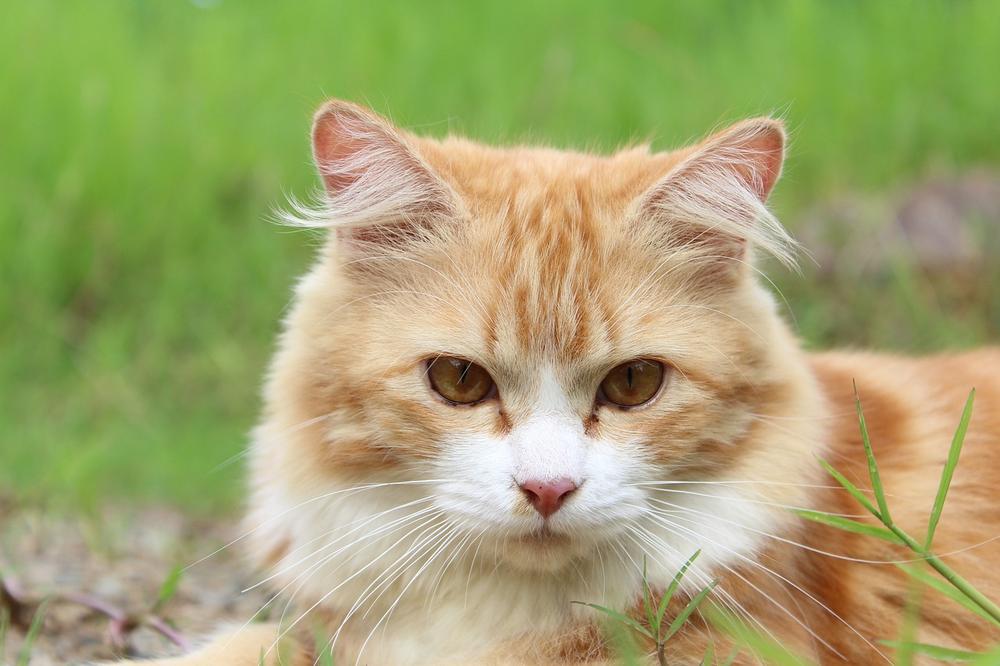
Any potential obstruction could prove fatal.
Thus, never delay seeking immediate veterinary attention if you suspect your cat has ingested bromeliad.
Keep a close eye on your furry companion and ensure their safety within your home environment.
And it gets worse...
Not only do bromeliad plants pose a risk to cats, but they can also cause harm to other common household pets.
In the next section, we will discuss how bromeliads can be toxic to dogs and what measures you can take to safeguard them.
Stay tuned for crucial information on protecting your furry friends!
How to Keep Your Bromeliads Safe From Your Cats
Keep your bromeliads out of reach
When it comes to protecting your bromeliads from mischievous cats, the first and most crucial step is to ensure they are kept safely out of their curious reach.
To achieve this, consider placing your bromeliad plants on elevated stands or using hanging baskets, effectively keeping them beyond the grasp of your feline friends.
Use citrus scents and vinegar as deterrents
Cats have an acute sense of smell, and there are certain fragrances that they simply can't stand.
To discourage cats from getting too close to your cherished bromeliads, you can try applying refreshing citrus juices such as lemon, lime, or orange onto the leaves.
The delightful aroma will repel cats, creating a natural barrier against them coming into contact with your beloved plants.
Another effective method is strategically placing cotton balls soaked in vinegar on top of the soil. Cats find the scent of vinegar quite off-putting and will definitely think twice before approaching your precious bromeliads.
Be mindful of toxic substances and potential risks
Although bromeliads bring beauty into your home, you should bear in mind that not all species are safe for pets, particularly cats.
For instance, the Blushing Bromeliad plant can be toxic if ingested by cats.
Therefore, it's imperative to ensure these plants are securely kept out of the reach of both pets and children.
Additionally, exercise caution when selecting fertilizers for your bromeliads, as some may contain harmful chemicals that can pose a threat to your furry companions.
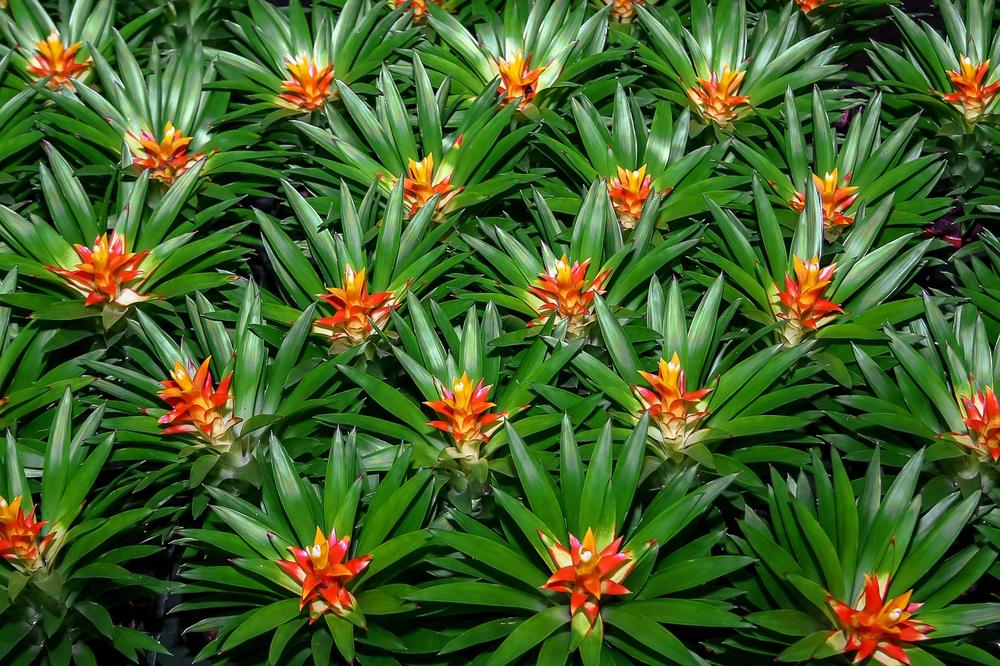
Always read labels carefully and opt for pet-safe alternatives.
And one last thing...
The luscious leaves of bromeliads might tempt curious kittens to nibble on them.
However, it's best to avoid leaving them unsupervised near these plants.
While chewing on bromeliad leaves may not always result in harm, it could potentially make them sick or even cause choking. So, when it comes to cats and bromeliads, remember that safety is paramount.
Note: If you're a cat owner like me, I understand your concerns about keeping your beloved pets safe around plants. That's why I recommend checking out my guide on whether philodendron plants are toxic to cats. It's important to know how to keep your furry friends out of harm's way while still enjoying the beauty of indoor plants.
But here's the thing you might not know about bromeliads...
Did you know that these versatile plants can also provide other incredible benefits beyond their aesthetic appeal and air-purifying properties?
In the next section, we'll explore some surprising advantages of incorporating bromeliads into your home decor.
Get ready to be amazed!
How to Take Care of a Bromeliad
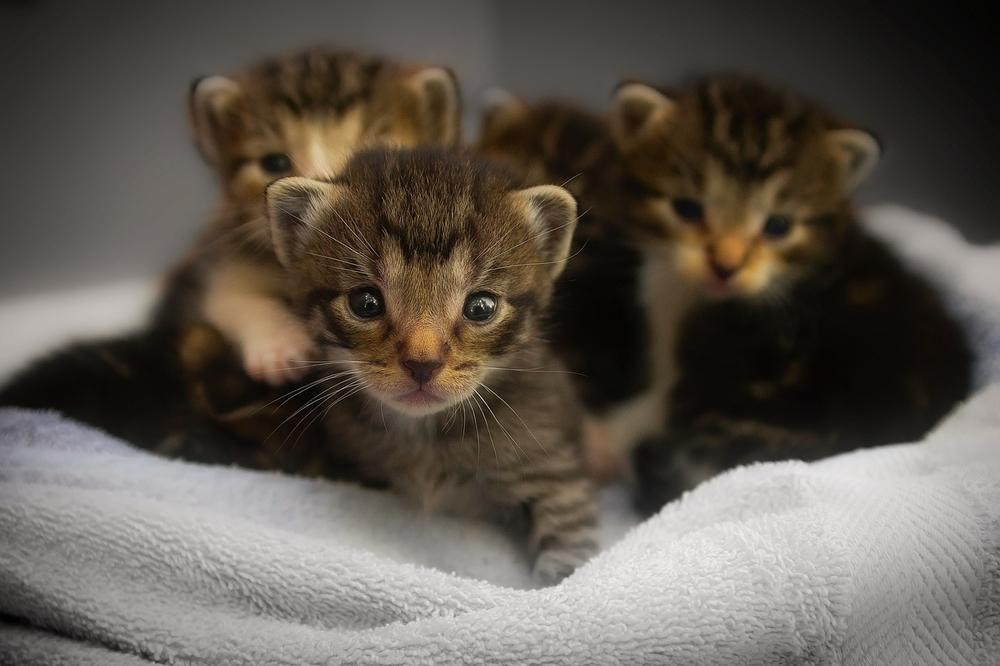
To ensure the health and well-being of your bromeliad, follow these 10 care tips:
- Choose a suitable location with adequate light.
- Water the plant directly into the central cup or soil.
- Avoid overwatering to prevent root rot.
- Use low-nitrogen fertilizers specifically formulated for bromeliads.
- Provide good air circulation to prevent mold and fungus growth.
- Keep the temperature between 60-80°F (15-27°C). 🌡
- Mist the leaves occasionally to mimic their natural environment.
- Remove any dead or dying leaves to maintain plant vitality.
- Repot the bromeliad only when necessary, using a well-draining mix.
- Watch out for pests like scales and mealybugs, and take appropriate action.
With these simple steps, you can enjoy the beauty of bromeliads in your home while ensuring their longevity.
How Do I Treat a Cat That Has Been Poisoned by Bromeliad?
Taking immediate action is crucial if a cat has ingested bromeliad leaves.
Contacting a veterinarian should be your first move to get guidance on inducing vomiting or providing necessary supportive care measures. Treating bromeliad poisoning may involve inducing vomiting and administering IV fluids.
You must seek professional veterinary help if the symptoms persist or worsen.
Houseplants That Are Safe and Non-Toxic for Cats
If you're a cat owner who loves plants, you might be wondering which houseplants are safe for your furry friend.
But don't worry, I've got a list of cat-friendly houseplants just for you.
First up, we have Boston ferns.
These lush and green plants not only add beauty to your space, but they're also safe for cats to be around.
No need to stress about any harm coming to your feline companion.
Next on the list are air plants.
These trendy little plants don't need soil to grow, so they're perfect for both cats and those who love minimalistic decor.
It's a win-win situation.
If you want some plant entertainment for your cat, consider spider plants. Not only are they non-toxic, but their long dangling leaves can provide hours of fun for your furry friend.
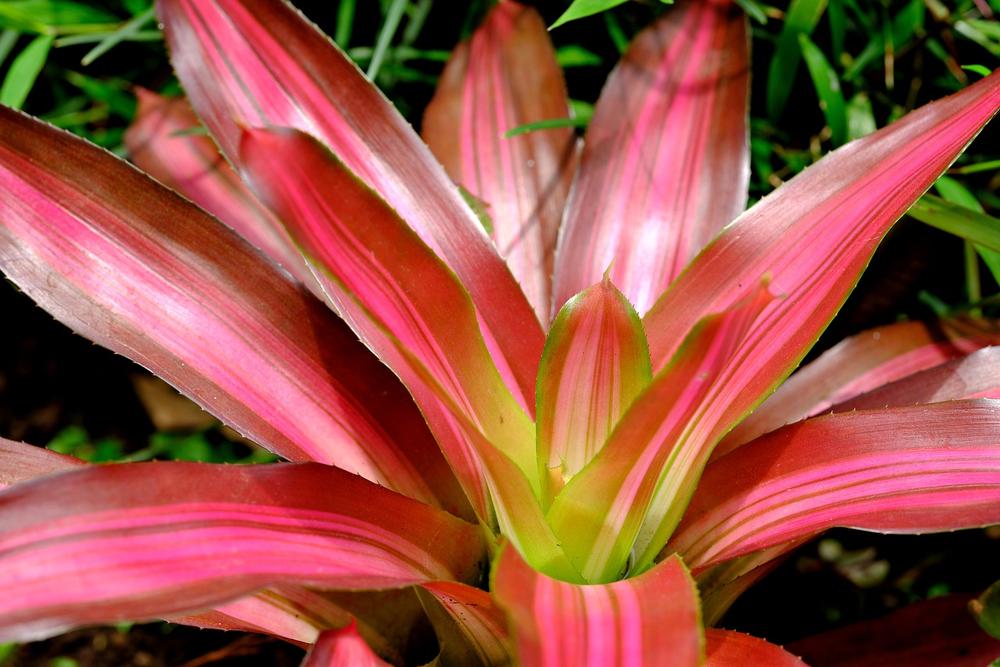
Trust me, they'll love it.
For a touch of elegance, try African violets.
These colorful flowers can brighten up your home without posing any danger to your cat.
It's all about creating a safe and stylish environment.
And if you want to add a tropical vibe, palms are the way to go.
Parlor palms, Areca palms, and Ponytail palms are all safe options that can give your space that exotic feel. Your cat will thank you.
But wait, there's more!
Here are some additional safe and non-toxic houseplants worth considering:
- Large flowerhead plants
- Joining cat-lovers communities on social media platforms like Facebook can provide valuable information and personal experiences regarding safe houseplants.
- Outdoor-climate Palms such as Parlor, Areca, and Ponytail varieties
- Safe succulents include Haworthia and burro's tail
- However, be cautious with English ivy and devil's ivy, as they can cause vomiting and breathing difficulties in cats.
- And here's an important tip: Avoid lilies at all costs. They can lead to acute kidney failure in cats, and we certainly don't want that.
Always do your research before bringing any new plant into your home.
Your cat's safety should be your number one priority.
Take care!
Last word
- Bromeliad plants may cause gastrointestinal upset in cats.
- There is conflicting information about whether bromeliads are toxic to cats.
- Low amounts of fertilizer ingestion can still cause stomach problems in cats.
- Bromeliads can cause allergic reactions in humans if they come into contact with the sap.
- Cats are generally unaffected by bromeliad plants and they are not known to be poisonous.
- Symptoms of bromeliad poisoning in cats include vomiting, diarrhea, and seizures.
- Immediate veterinary attention is necessary if your cat ingests a significant amount of bromeliad leaves.
- To keep bromeliads safe from cats, secure pots and use citrus aromas or vinegar-soaked cotton balls.
- Be cautious with fertilizers for bromeliads as they may contain harmful chemicals for cats.
- Cats can cause significant damage to bromeliad plants by knocking them over or digging in the pots.
- Bromeliads are adaptable plants that can purify the air indoors.
- Contact a veterinarian immediately if your cat ingests a bromeliad plant.
- Consider alternative non-toxic houseplants for cats and join a cat-lovers community for more information.
- Some safe houseplant options for cats include spider plants, African violets, and palms.
- Pay attention to the toxicity of plants like lilies, English ivy, and devil's ivy.
And that wraps up today's article.
If you wish to read more of my useful articles, I recommend you check out some of these: Is Zz Plant Toxic to Cats, Are Boston Ferns Poisonous to Cats, Can Cats Eat Spider Plants, Is Eucalyptus Oil Safe for Cats, and Are Tulips Poisonous for Cats
Talk soon,
-Sarah Davis